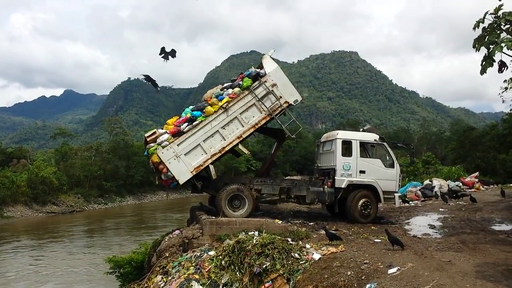Whistleblower exposes scheme to avoid customs duties.
Customs and trans-shipment duties
It is cheaper to make things in China. It is so cheap that it is cheaper to make things in China and then ship them to the United States. It is so cheap that a company can make things in China, ship them to Taiwan, disguise them as a Taiwanese made products and then ship them to the United States.
To level the playing field, the United States charges customs duties on imported goods.
Two of those customs duties are Antidumping and Countervailing Duties. Antidumping is pretty straightforward: it prevents foreign companies from making a lot of something cheaply and then dumping their goods here at prices that local companies could not match. Countervailing duties apply when the products in question have benefitted from government subsidies. The United States also imposed Section 301 tariffs on certain products originating specifically from China, up to 25% for certain aluminum and steel products.
It’s easy to see why a company would want to avoid those duties. The less a company pays in customs duties, the less they can charge consumers, the more product they can sell, and the more profit they can make. This is especially true when the company has taken advantage of cheap labor or foreign government subsidies.
The scheme
A whistleblower lawsuit alleges that Yakima Products manufactured automobile accessories like hitches and roof racks, often by importing extruded aluminum components from China. These imports are subject to antidumping and countervailing duties (AD/CVDs), which are trade remedies designed to protect U.S. manufacturers from unfair competition by foreign companies selling products below fair value.Importers are required to declare and pay all import duties, including AD/CVDs, on their customs entry documents. However, this whistleblower lawsuit alleged that Yakima failed to fulfill these obligations for over six years.
During a “Prior Disclosure” review, Yakima purportedly discovered this compliance issue but failed to report it to U.S. Customs and Border Protection (CBP) as required. Instead, the company allegedly falsely certified to CBP that its review was complete, omitting the unpaid AD/CVD duties.
Yakima was also accused of evading Section 301 tariffs by transshipping Chinese-manufactured merchandise through Taiwan before importing it into the United States. The company allegedly misdeclared the country of origin (COO) as Taiwan on customs entry documents, even though only "light assembly and packaging" occurred in Taiwan, rather than the "substantial transformation" needed to change the COO from China to Taiwan.
Transshipment fraud involves routing goods through a third country to falsely change their country of origin, allowing importers to evade duties or tariffs. Common hubs for this activity include Vietnam, Thailand, Malaysia, and Taiwan, where minor processing or repackaging is done to disguise the true origin of the goods.
Here, the whistleblower alleged that Yakima started disguising their goods as Taiwanese-made instead of Chinese-made soon after the Section 301 tariffs took effect, without changing its supply-chain arrangements. The whistleblower discovered the fraud during his employment by observing the operations of the relevant plants in China and Taiwan.
The penalty
Yakima will pay $3 million to resolve False Claims Act allegations and $75,000 of the whistleblower’s legal fees.
The whistleblower
In court pleadings, the whistleblower says that he discovered the fraud in the course of his employment when he observed the operations of the relevant plants in China and Taiwan.
The whistleblower reward
The whistleblower will receive 17% of the award, or $510,000. Under the qui tam provision of the False Claims Act, a private party (also referred to as a whistleblower or relator) may file an action on behalf of the United States and receive a portion of the recovery, typically between 15-30%.
If you think you’ve observed fraud or misconduct, we can evaluate your options. Vivek Kothari is a former federal prosecutor who represents whistleblowers. For a free consultation, contact Vivek by email, phone, Signal, or fill out the contact form.
Image source: Averyaudio, CC BY-SA 4.0 <https://creativecommons.org/licenses/by-sa/4.0>, via Wikimedia Commons

